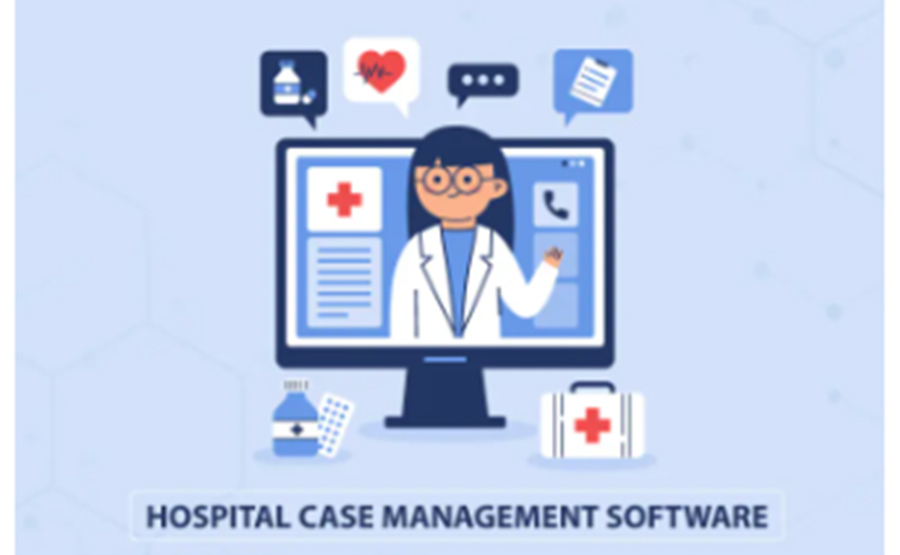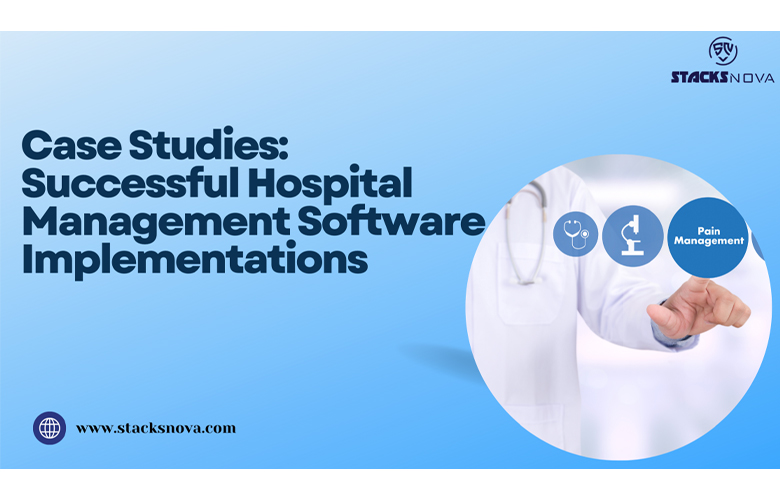
What Is Hospital Management Software?
The digital tool known as hospital
management software, or HMS, aids healthcare
organizations in streamlining their operational and administrative procedures. It offers a
consolidated system for handling a number of hospital operations, including electronic
health information, billing, appointment scheduling, pharmacy management, and patient
registration.
It can be used to the following hospital management domains
Information about the staff: Professional information and phone number
Doctor-specific automated digital features: The medical history, treatment progress tracking, and patient health information; making appointments, emergency calls, and crucial reminders; prompt access to additional experts when needed
Performance in the lab: Enter each patient's test and analysis findings.
Supply chain management: Inventory of medications and equipment
Billing : monitoring patient spending and hospital spending
Insurance: Information on patient insurance and a list of businesses with hospital partners.
Advanced reporting: Data analytics that is automated and diversified in reports for various performance evaluations.


Importance Of HMS In The Healthcare Industry
Hospital management software is essential in an industry where accuracy and time management are critical. It increases overall efficiency by doing away with the requirement for manual documentation and lowering the possibility of mistakes. Hospitals can provide improved patient care because of HMS, which offers real-time insights into patient data and facilitates smooth departmental communication. Because healthcare is becoming more and more complicated, HMS is becoming a vital tool for hospitals in the modern day.
Main Types of Hospital Management System and Its Advantages

As a result, a wide range of hospital management system types have been brought to the digital market today, such as:
Software for managing hospital claims is used to streamline the organization, invoicing, filing, updating, and processing of many types of claims pertaining to patient diagnosis, treatment modalities, and prescription regimens.
Software for hospital asset management is a useful tool for organizing, purchasing, maintaining, managing, and getting rid of the machinery, equipment, and tangible assets owned by the medical facility.
Hospitals can access, manage, and approve routine agreements with the help of hospital contract management software, which is particularly useful for handling high contract volumes. It simplifies and enhances the many parts of contracting operations.
Hospital facility management software aids in a number of tasks, including forecasting needs, prioritizing capital investments, and maintaining facility compliance between hospitals.
Software for managing the flow of activities and procedures throughout the hospital unit is essential for hospital supply chain management.
Hospital personnel, physicians, and patients can effectively communicate with one another through the use of hospital information management systems, which are focused on the storing, managing, and analysis of various types of information.

Core Features to Include in a Hospital Management System
CASE STUDY EXAMPLE
Enhancing Operational Efficiency at Mercy General Hospital
Background:
Mercy General Hospital, a mid-sized facility with 300 beds, faced challenges
with
manual administrative processes and inefficient resource management. The hospital decided to
implement an HMS to address these issues.
Implementation:
Mercy General Hospital chose an HMS with modules for patient management,
billing, inventory, and electronic health records (EHR). A dedicated implementation team,
including IT specialists and healthcare professionals, oversaw the process.
Key steps included:
Results:
Post-implementation, Mercy General Hospital experienced significant improvements:
Conclusion:
The successful implementation of HMS at Mercy General Hospital showcases the
importance of thorough planning, customization, and staff training in achieving operational
efficiency.
Summary
These case studies illustrate the transformative power of Hospital Management Software in diverse healthcare settings. From enhancing operational efficiency and improving patient care to reducing costs, HMS implementations can lead to significant improvements in hospital performance. By learning from these successful examples, other healthcare facilities can better navigate their own HMS implementation journeys and achieve similar benefits. For more insights on healthcare technology and HMS, explore our other blog posts and resources.
